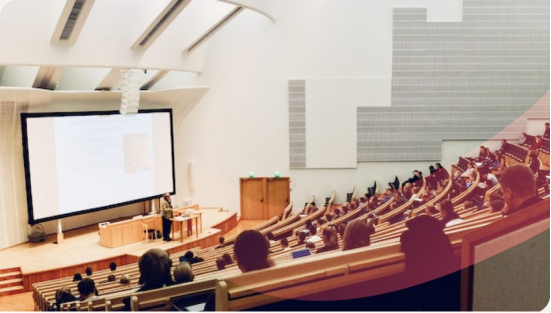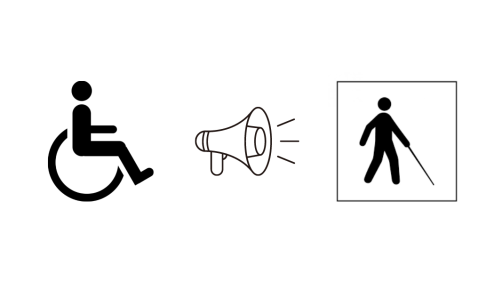Presentation
The constant changes in our environment highlight the growing importance of having experts able to conceive development strategies on an international scale, and capable of managing production activities rooted locally while taking into account European and global issues.
The MSc Expert in International Relations and Cooperation provides you with comprehensive, up-to-date expertise in the fields of International Relations and Cooperation, Political Science, International Trade and Defence and Security. You will be trained to master the traditional approach to the study of International Relations and the mechanisms of Modern Diplomacy.
It also covers the various stakeholders involved in the world’s major geopolitical dynamics: International Organizations, National and Regional Actors, etc. You will assimilate the fundamentals of International Law, Economics, Geostrategy and Conflict Resolution.
By the end of the first year, you have a research dissertation to complete, with the support of a research supervisor who is a specialist in the field. You are prepared in a research methodology seminar.
In the second year, theme-based seminars are also offered:
- Major Players in International Relations
- Sectorial Policies of International Relations
- Crisis Management
- Influence Diplomacy
- International Legal Framework
- Complex Information Research and Analysis
- International Project Management
Courses are taught in both French and English.
To learn more about our Programme, feel free to download our documentation.
Recognition of the Program
- This Program awards a «MSc Expert en relations & coopérations internationales» Certification from HEIP
- This course also delivers a Level 7 State Certification, NSF code 128 & 346, for its “Expert en relations et coopérations internationales” program, registered under RNCP (Répertoire National des Certifications Professionnelles) number 39853 by decision of France Compétences on 28.11.2024.
- Each completed academic year also provides with 60 ECTS credits (European Credit Transfer System). This system facilitates a simpler and more transparent recognition of diplomas and qualifications between European Union countries, making each student’s academic journey more flexible and transparent. For more information about the ECTS system, feel free to consult the official page.

Program
The MSc Expert in International Relations and Cooperation is divided into four common areas of expertise:
- Monitoring and providing expertise in economic, political and diplomatic intelligence
- Advising on the development and supporting the implementation of an international strategy
- Provide leadership, advice and support in crisis or conflict situations
- Manage an international project
In addition to these blocks, the following courses are offered, depending on the specialization chosen.
The programme equips you with essential skills that meet recruiters’ requirements and enable you to reach your chosen careers goals.

Specialization 1
International Affairs & Economic Diplomacy
Conduct an attractiveness and support strategy to boost a Company’s global presence.
The programme will enable you to implement and manage an attractiveness policy at regional or national level. You will study support and assistance policies to help companies go international. You will implement an influence and events strategy using the tools of economic diplomacy.
This specialization is offered on the Paris and Lyon campuses.
For this specialisation, a 100% English track is available, for which you need to have a C1 level of proficiency.

Specialization 2
International Security & Defense Policy
Advising on International Defence and Security Policy or Cooperation
(including cyber security).
The programme equips you with the necessary knowledge to implement an international defence or security strategy in the context of information warfare. You will analyse the context and the issues at stake and propose political and military objectives. You will be able to advise a structure on its technological or industrial defence strategy.
This specialization is taught on the Paris campus.
The list below gives an overview of the courses. For a more complete list, feel free to download the documentation.
Job Opportunities
After completing the program, our students are able to work in both the private and public sectors, nationally and internationally, in multinationals as well as smaller companies. Depending on their chosen specialization, they quickly rise to positions of responsibility.
(non-exhaustive list)
Specialization International Affairs & Economic Diplomacy
- Project Coordinator for an international organization
- Mission Officer within a local authority
- Logistician in an NGO
- Expert for government agencies and ministries
- Consultant in a consultancy firm
- Training Manager for Cooperation Project Management
Specialization International Security & Defense Policy
- Operational Security Manager
- Cybersecurity Consultant for service providers
- Mission Officer within international organizations
- “Economic Intelligence” Analyst
- Crisis Management Communications Officer
- Consultant for defense companies
Choose our Work-Study Program!
The MSc Expert in International Relations and Cooperation is offered on a Full-Time or work-study basis.
For students on an initial course, an internship is compulsory at the end of the program (minimum 110 days starting in March).
Work-study students are required to submit a report on their experience at the end of the year, with an oral presentation to a panel of judges.
Admission to the first year requires a two-year work-study contract ; to enter the second year directly, a one-year contract is sufficient.
Work-study programs are available on the Paris and Lyon campuses only, on a 2-week / 1-week schedule, with a minimum presence in the company of 110 days.
Campuses Schedules

Paris
- Download the Work-Study Program Schedule – International Affairs & Economic Diplomacy
- Download the Work-Study Program Schedule – International Security & Defense Policy
- Download the Full-Time Program Schedule
Admissions

Prerequisites for the First Year (M1)
- A Bachelor Degree (180 ECTS) or equivalent foreign qualification in humanities, law, social sciences, politics or economics.
- Strong interest and broad knowledge in Political Science and International Relations
- A C1 Level in English for those interested in joining the 100% English specialisation in International Affairs and Economic Diplomacy.
You can also apply for the second year of the MSc.
Prerequisites for the Second Year (M2)
- A 4-year Bachelor Degree (240 ECTS) or equivalent, validated in the following fields: International Relations, Political Science of Public Administration, international law, public law, political and geopolitical science, economics.
- Strong interest and broad knowledge in Political Science and International Relations
- A C1 Level in English for those interested in joining the 100% English specialisation in International Affairs and Economic Diplomacy.
Admission Process
- Submit an application file
- Oral admission test
The candidate will receive the results of the tests 4 weeks after presenting their application file to the jury.
All details are provided on the Masters Admission page.

Fees
Tuition Fees:
€9,990 per year of studies
(CVEC tax to be paid before the start of the school year following registration)
Application Fees:
€80 (for any year of studies you are applying to)
For students on work-study programs, the tuition fees are paid by the student’s company or institution and/or the skills operator (OPCO). The remaining cost for the student is zero.
These fees are valid for the 2025/2026 academic year and are subject to annual review.
Practical Information
Satisfaction Survey
- Certification rate at the end of the MSc “Expert en relations & coopérations internationales” – Year 2022 – 2023: N/A*1
- Teaching quality (pedagogy, expertise, availability, support, dialogue): 84%*2
- Quality of work-study program: 90%*2
- Apprenticeship indicators and rates
*1 certification obtained in 2023
*2 Opinionway survey November 2023

Speakers
All our speakers are lecturers or experts in their field.

Campuses
Courses are held in Paris and Lyon.
Consult the informations on each of them on our dedicated page.

Accessibility
The HEIP admission process is accessible to people with physical disabilities since the competition is 100% online.
For people with invisible or mental disabilities, the admission teams may adapt the tests.
All HEIP campuses (Paris, Lyon, Bordeaux and London) are accessible to people with reduced mobility.






